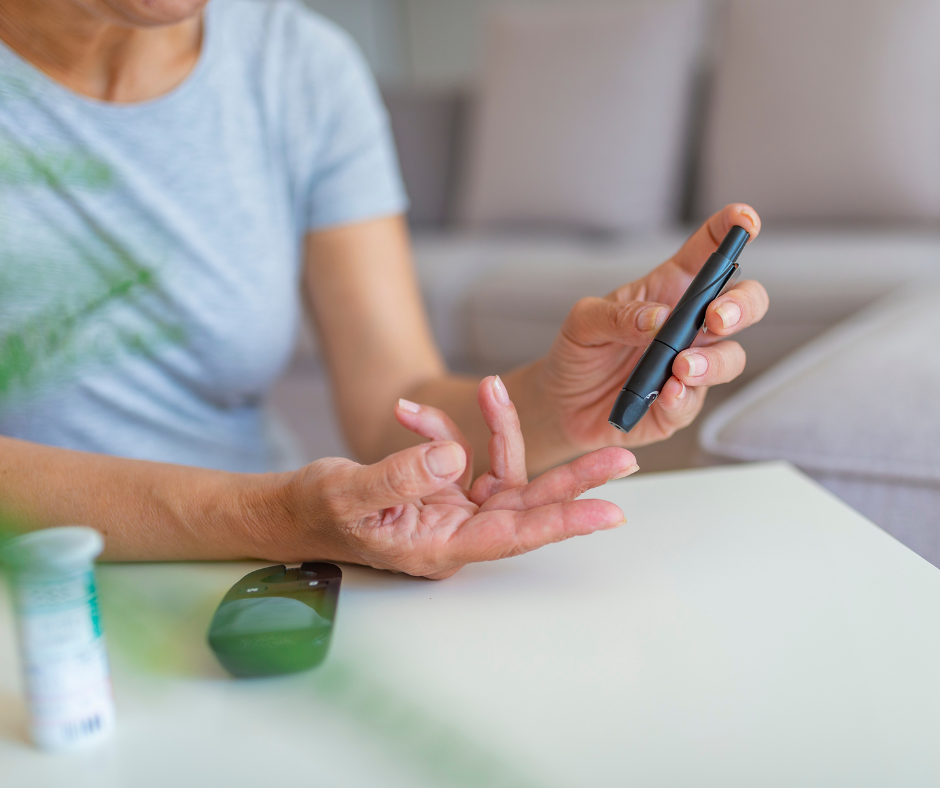Blood sugar balance can truly change your life. This is why it is so foundational here at F8. And, if you’ve followed me for very long, you’ve probably heard me say this: Blood sugar balance can reverse or prevent over 90% of chronic conditions in the US. Yes, that’s correct… Over 90% of chronic diseases, autoimmune diseases, metabolic issues, and more could be prevented by simply learning to keep your blood sugar in check. If you have not started monitoring, now is a great time to dive in.
Why You Should Monitor
Blood sugar, also known as blood glucose, is the primary source of energy for the human body. It is derived from the food we eat, and the levels of blood sugar in our body are affected by the type and amount of food we consume. Maintaining stable blood sugar levels is essential for overall health and well-being.
Monitoring your blood sugar should be as natural to you as checking your blood pressure or heart rate. These vital signs can give you some pretty great insight into the health of the systems in your body. Glucose monitoring has been a pillar of care for our patients for years for many years. Most patients are shocked to see how their blood sugar is responding to the foods they eat.
We do prefer to use a continuous glucose monitor (CGM), as it gives you real-time blood sugar tracking and readings every 5 minutes. However, anyone can start with a finger-prick-style monitor. These are much more readily accessible and super easy to use.
The Basics Of Blood Sugar Monitoring
If you are using a finger-prick-style monitor, you will want to check your blood sugar anywhere from 5-8 times each day. The best times to check are first thing in the morning (before breakfast), 45-60 mins after a meal, and before bed. We also recommend checking 2 hours after a meal to make sure that you are not missing any spikes or subsequent crashes. At F8, we recommend blood sugar remain in range at 85-110 all day, whether you have eaten or not.
When we eat, it is normal for our blood sugar to rise a small amount. What is not normal is to see swings (up or down) of more than 30 points. When you begin monitoring, it’s crucial to keep a food log of what you are eating. This allows you to pinpoint patterns and understand how the foods you are eating affect you personally. Every single person is going to respond differently to different foods. As a general rule of thumb, simple carbohydrates, processed foods (or those high in sugar), as well high sugar fruits will create more of a ‘spike’ or sudden increase in levels.
Monitoring the foods you eat and learning how your body responds is the best way to take control of your blood sugar and your health and truly change your life.
High Blood Sugar VS Low Blood Sugar
High blood sugar directly contributes to inflammation, metabolic syndrome, insulin resistance, diabetes, prediabetes, PCOS, and more. In contrast, low blood sugar, especially crashes, is the number one stressor to the adrenal glands. This is one of the main things we see in our patients dealing with autoimmune issues. The good news? It can be prevented or reversed by working to balance blood sugar.
Recap For Monitoring:
Remember, the goal is to understand how your body is responding to the foods you eat. Start with checking 45-60 minutes after a meal, and again at the two-hour mark. Make notes about what you ate and how those foods affected your blood sugar.
Some patients choose to introduce one food at a time to see how they respond. Generally, if you are eating good quality lean meats and vegetables, you are not likely to see a spike with those foods. However, if you add an orange to the mix or some sort of carbohydrate, you will likely see more of a rise. This will help you as you start narrowing down the foods that cause issues.
Other important times to check your blood sugar are going to be first thing in the morning, and again before bed. If you are waking in the night, we recommend checking it then to see how your body is responding while you sleep.
Blood sugar balance really starts during the day. If you do notice that you are waking in the night feeling sweaty or with your heart racing, it may be due to blood sugar imbalances. If this does happen, we recommend checking your levels and/or trying a quality fat or protein snack before bed. Avocados and lean proteins are great before-bed snacks. Both help stabilize blood sugar throughout the night keeping you fast asleep. Blood sugar balance truly can change your life!
If you’re ready to take your take control your health, our team of dedicated F8 Doctors, Metabolic Coordinators and staff are ready to help.
